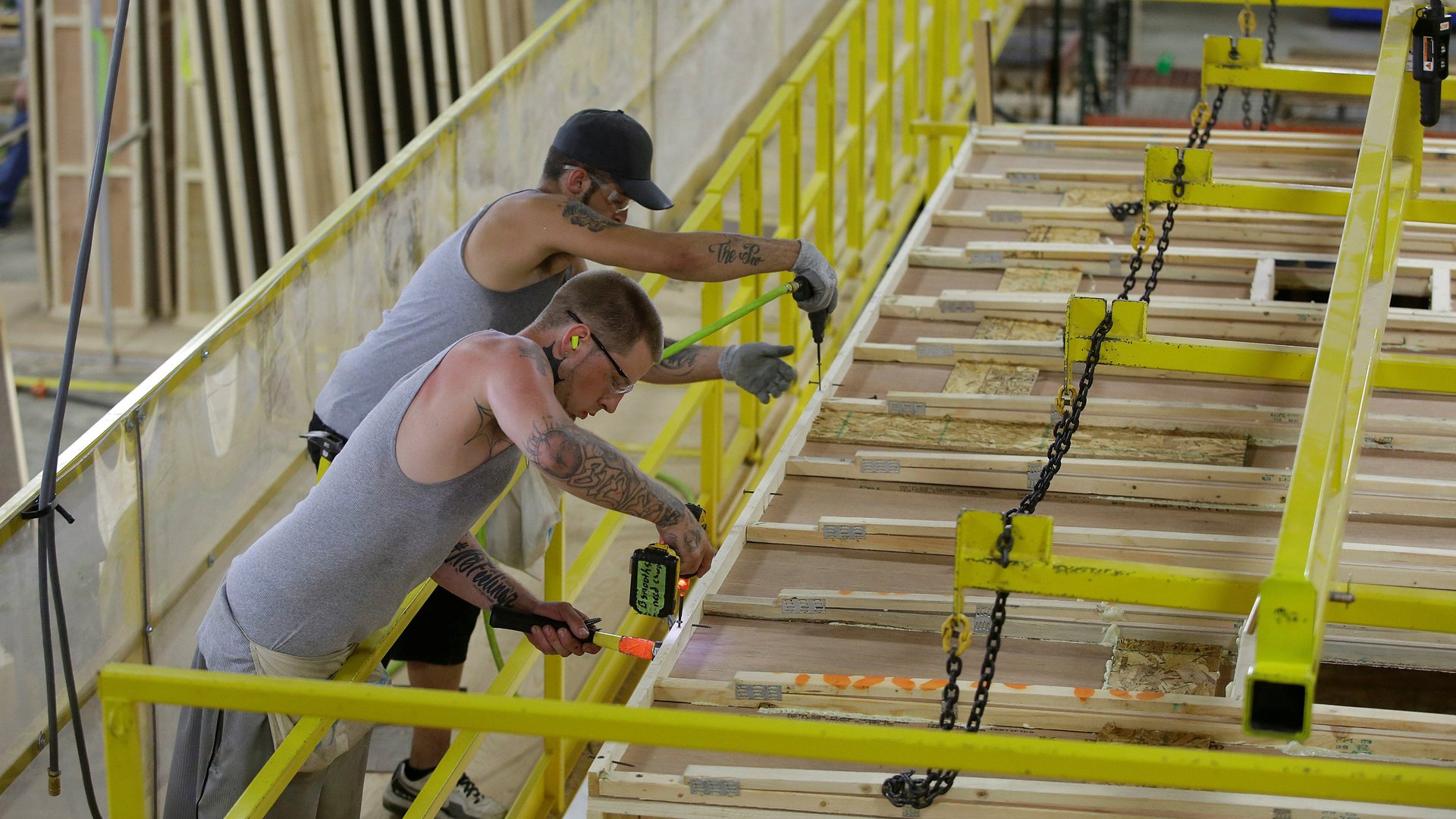The US job market is the strongest it’s been in years. So why aren’t workers getting bigger raises?
The US economy has added jobs every month for nearly seven years—81 months in a row, to be precise—and the unemployment rate, at 4.4%, is near historic lows. And yet, today’s update of employment stats also features bad news: stubbornly sluggish wage growth for workers.


The US economy has added jobs every month for nearly seven years—81 months in a row, to be precise—and the unemployment rate, at 4.4%, is near historic lows. And yet, today’s update of employment stats also features bad news: stubbornly sluggish wage growth for workers.
In short, jobs are plentiful but pay raises are scarce. This is a pressing—and perplexing—issue, as workers are told the job market is strong but are watching their standards of living stagnate or deteriorate.
Typically, when labor markets tighten, wage growth accelerates as employers are forced to compete for workers, who gain bargaining power. The US economy added 222,000 jobs in June, and earlier data was revised up to add some 80,000 more jobs than previously reported. Wages, however, grew by 2.5%—right at the annual rate recorded over the past two years—in June, and the previous month’s growth was revised down. Some think healthy wage growth at this stage in the economic cycle should be closer to 3%, a rate not achieved since 2009, when the unemployment rate was double what it is today.
One theory is that the financial bubble that popped in 2008 created a mismatch between the jobs people are trained to do and the jobs that are actually available, according to Alberto Gallo, head of global macro strategies at Algebris Investments. People who worked in industries like real estate and energy now have to adapt to a very different job market that’s being reshaped by technology, automation, and other trends. That takes time and Federal Reserve policy—such as lowering interest rates to stimulate economic activity—is of little help in this process.
What’s needed is widespread retraining programs for workers, Gallo says. He cites Australia, which is helping retrain mining workers, as an example of such a policy. But this approach still takes time to make an impact.
Demographics could be another reason why wage growth has been so weak. An aging workforce will keep a lid on pay raises, said Princeton economist Alan Krueger, who was formerly chairman of president Barack Obama’s Council of Economic Advisers, in a Bloomberg Television interview. That’s because older workers typically don’t get pay raises as often as younger employees. Until the ranks of older workers retire in larger numbers, this too will have a lasting effect on wage growth.